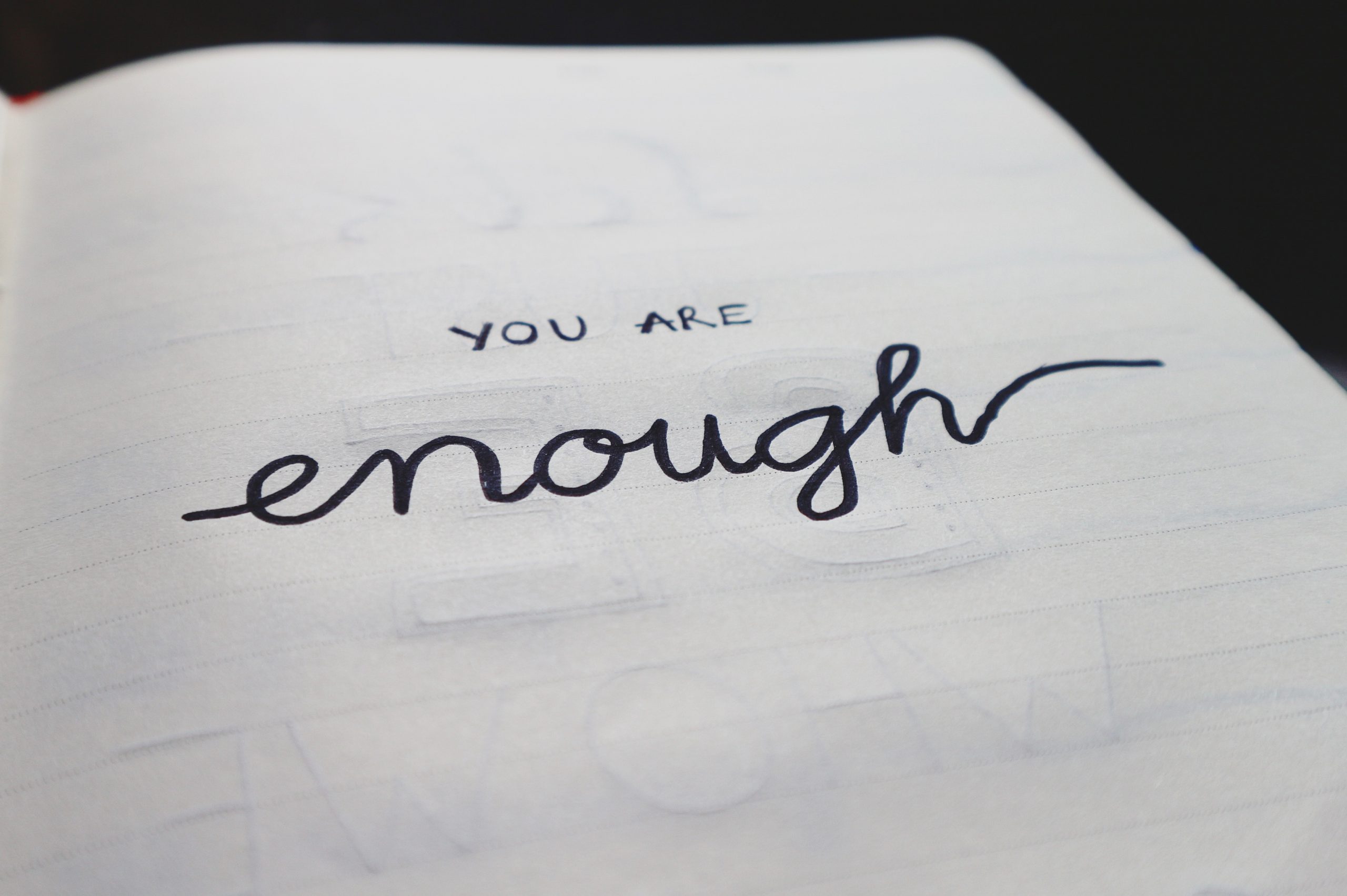Why Does It Feel Like We Midlifers Don’t Have Our Sh*t Together Like Our Parents did?
10.07.2021

We’ve all been to our parents’ house at some point or another – y’know, the one they’ve lived in for all of their 50-year marriage and own outright – and wondered just how the f*ck they did it.
“Every parent knows that their children look at their grandparents as sources of wisdom and security.’ – David Jeremiah, author.
3 simple steps for getting your sh*t together like your parents
A mindset takes time and patience to develop – it’s why our parents were so damn good at embracing their reality. They practiced that mindset every day because it’s all they knew.
But there were, essentially, three main factors to their success and stability that you can put into practice today:
- Learn fiscal responsibility. Back when treats were treats and not just expectations, your parents sacrificed their idea of a lavish lifestyle so that you could have the life you do today. So don’t squander it. Does your lifestyle match your income? And would you be able to maintain that lifestyle after you retire? (In other words, do you have enough of a safety net?)
- Develop emotional resilience. Toxic positivity is genuine. The expectation that you can just Ohmm Shiva Ohmm your way through every single roadblock life puts up is actively harmful. It robs you of practical solutions. So your only way through is to develop resilience. You won’t feel great all the time. Expect pain. Deal with it. And learn to embrace it.
- Stop hunting for some distant purpose. It’s right in front of you, dictated by your obligations. You’ve got kids? You’re obliged to look after them and shape them into great people. That had better be your purpose. Our parents finished what they started, as commencing a task generates the obligation to finish it. That’s where they found purpose. Boredom didn’t give them cause to ride off into the sunset, hunting (in vain) for a vague equivalent of the meaning of life from $100-per-hour gurus.
Team Vippi took a deeper dive into what our parents got so right – and what we can do to step our games up in a similar way.
Sure, they’re not perfect. But who is?
You think back to your childhood, and they met your every need, making sure you had savings for college and providing food every morning, noon, and night despite sometimes struggling for work. No complaints. Few days off.
Gratitude floods your body – you feel so blessed to have had the platform you did.
Then, you look at the foundations you and your family have, and they seem a lot shakier. That gratitude turns to envy and confusion. You feel guilty about making comparisons when your parents only ever had your interests at heart. But you can’t help it.
Your mortgage feels like it’s hanging on by a thread.
Your favorite motivational blog is repeatedly hammering the idea that you should be unhappy at a job that bores you – and you’re starting to absorb those emotions.
You’re comfort-eating your way through anxieties that you can’t find the root of.
You’re regularly tired, dissatisfied, and angry.
But there’s a reason that your parents never really came across that way. A lot of their rock-solid foundations came from having a Reality Mindset.
H3: Our parents’ reality mindset: What that means
Aging gracefully isn’t a closely guarded secret – your parents have been teaching you how to prosper for your entire life. You just need to choose to listen.
Our parents built their lives from what was available to them at the time. Instead of embarking on an epic quest for meaning and purpose, they planted their roots, drilled downwards, and found a bursting well of satisfaction right under their feet.
They didn’t outspend their salary. They didn’t try to show off to their neighbors. Their standard of living lined up with their means. And they didn’t allow for any distractions from their daily lives and commitments.
There was a time and place for everything. There was a routine. They might not have had passion or a whole lot of fun, but they had a purpose. They knew which direction they wanted to head in and what they needed to do, and that meant they were fine not enjoying every step of the journey.
Mom and Pop were functional – most of their life was, in some way, a process. They were resilient enough to do boring things without getting bored. A routine never devolved into grinding repetition for them. It was enough for your parents that they were keeping a roof over your head.
They were a generation that helped themselves. There weren’t many ‘coaches’ or ‘motivators’ back in the day – and, surprise, surprise, your parents still built an amazing bedrock for you. In many ways, they ended up better off than we are.
So what’s the difference?
But we’re not millennials – I thought we had “reality” covered?
With each passing generation, an increasing focus has been placed on the preservation of personal feelings.
And while we might look at younger generations and turn our noses up at the need to bring social justice politics into the workplace or the absurd stockpile of monthly subscriptions they’ve built up, we’re not all that different in the grand scheme of things.
Nowadays, we have an Emotion Mindset. We live our lives focusing on the emotional outcome of everything we do. We have to follow our passion. Everything must generate positive feelings. If we allow ourselves to be bored, even for a second, everything has to change.
And yes, feeling happy is not a crime. But at one point or another, we’ve all cast an anxious eye over our savings, our relationship, or our work situation. And, then, we thought about our parents and wondered what they’d have done differently.
The 20th Annual Transamerica Retirement Survey of Workers found that a staggering 80 percent of Gen X-ers feared that they’d experience way more difficulties than any other generation in achieving the same financial stability as their parents. (More on this later – it gave us a lot to think about.)
We’ve all heard that less is more. Our parents learned to do more with less. And Team Vippi wanted to impart a few of the important lessons learned from our own parents to help you flourish in the same way.
Our parents budgeted

Our parents were, on the whole, immaculate budgeters. Maybe this was a result of having to balance a checkbook by hand. (Can you even imagine that in 2021?) Mostly, though, it’s down to only buying the stuff they needed.
A 2019 study found compared the out-goings of baby boomers, Gen X-ers, and millennials. In terms of the percentage of their total expenses each generation spent on specific types of products, Gen X-ers reported that they spend more than baby boomers on ready-made food, clothing/accessories, and media.
Our parents made meals from scratch, generally avoided expensive designer clothes, and went to the movies when they could afford it.
We have a standard of living that is usually not in sync with our salary. Almost everything we buy is on some form of a payment plan – our home, car, even our mobile phone. We never hold that cash – it’s a number on a screen that goes somewhere else before we even see how it looks in our account.
And contactless payments are simply lethal. No longer do we have that 30 seconds to write a check and mull over the product we’re buying. You can wave Google Pay/Apple Pay at a contactless scanner, the money’s gone, and the unnecessary purchase is yours.
Most people don’t even pay off their credit cards in full. According to the Transamerica Retirement Survey, Gen X is the most likely of all generations to have credit card debt (52 percent of Gen X-ers surveyed had this type of debt).
Millennials were most likely to have student loan debt, and boomers were most likely to be… yep, you guessed it, debt-free. The same survey also, tellingly, found that Gen X was the least likely of these generations to use the services of a financial advisor.
From streaming services to the latest fashion, overpriced coffee to bottled water, and gym memberships to bullsh*t life coaching courses we don’t need, we incur irrelevant expenses every single day. All of it adds up.
What can we do better?
Three words: Fiscal f*cking responsibility.
You need to divide your expenditure into want and need. Keep your monthly car/house/appliance insurance payments going because they’ve got your back if your home burns to the ground. You need to keep paying your mortgage payments because, well, duh.
But do you need Netflix, Amazon Prime, and Disney Plus? Or would you be okay with just one? And if your answer is, “Yes, I desperately need to pay for infinite access to TV content,” ask yourself why you need it.
Do you honestly need to watch that much content? Or would you be better off spending that time:
- Outside?
- Conversing with friends?
- Exercising?
- Engaging in an entrepreneurship project?
- Fixing that leaky pipe you’ve been successfully ignoring for 3 months?
Congrats – you just found five concrete ways to enrich your life by spending less money. That’s not even taking into account gym memberships, your daily latte, and your insistence on buying books you never read instead of going to the damn library once in a while.
By redefining our wants and needs, we can build a more nourishing life that costs us less.
Discipline shaped our parents’ whole worldview.

Our parents were proud members of a ‘we’ generation. They did favors for their neighbors. To support their kids’ futures, they went without. They passed up on emotional gratification to hit loftier goals. In short, they had a vision of what their family needed beyond the next five years.
We’re part of a ‘me’ generation. Our parents built their lives around necessities. We build ours around luxuries. It’s what feeds our terrible fiscal decisions.
Our generation spends so much money in our quest to avoid ever feeling uncomfortable that, quite ironically, we put a dent in our future comfort by not putting aside enough savings.
Our discipline is lacking. And we might not even know that we’re out of control. Picture this cycle in your head, and tell us it’s not the most f*cking ridiculous thing you’ve ever read:
- You spend more to eat more.
- Then you spend more on a gym subscription to burn off the “more” you ate.
- You spend more on a course to tell you how to earn more money to make up for the shortfall you’ve experienced after spending money on the gym.
- Followed by working extra hours to earn money for the course, which makes you stress eat.
Go back to Step 1 and repeat until you feel like sh*t and have no savings.
We lack discipline in every category.
We’ve already been over our terrible attitude toward finances, but our discipline around emotion, relationships, and career trajectories also leave a lot to be desired:
- A lack of emotional discipline: We refuse to sit with negative emotions and watch them pass. Instead, we waste too many resources on fighting those emotions or engaging ourselves in expensive distractions.
- A shortage of discipline around relationships: We constantly yearn for excitement and sensation rather than stability and companionship. The irony is that we expect love to be unconditional but not our relationships.
- An entirely undisciplined approach to career development: Our parents had their field of employment and counted themselves lucky. On the other hand, we are thinking of a career change that jeopardizes our family’s security – solely because we didn’t end up as James frickin’ Bond or Wonder Woman.
No wonder our parents held down a marriage for decades and jobs for just as long. They weren’t flapping around in every possible direction, looking for instant gratification. They saw the value of a stable home because they remember the days of not knowing whether their dad would make it home from killing the Nazis.
The common theme around these undisciplined approaches is that we insist on letting our emotions guide us instead of our heads.
What can we do better?
We have to reframe boredom and routine as positive factors of life. Make a conscious effort to reattach your routine to your sense of purpose. One Member of Team Vippi absolutely swears by gratitude journaling.
Find yourself a journal or notebook you’ve never used (and you will have one laying around) or simply keep a note going in your iPhone. Mark the date every day, and underneath that, write down three things you’re truly grateful for.
There are also gratitude journal apps, including:
But why gratitude? We’re talking about discipline here. Well, a lack of discipline comes from a shortage of gratitude. We lust after unnecessary purchases because we don’t truly appreciate what we already have. A gratitude journal can help keep our minds focused on what’s really important.
Very few of our parents had exciting lifestyles. Life wasn’t about thrills and spills for them. A trip to Action Park might’ve been the most daring moment of the summer for your whole family. But you know what boredom means?
Stability.
Nothing is rocking the boat. Nothing unexpected is causing upset or panic. You all know where you’re at and what’s expected of you. You’ll see a whole bunch of sci-fi movies start with a character professing that they had the “most ordinary, boring childhood before the invasion” like it was a bad thing.
(Then aliens land and murder half of the suburban town this “boring teen” lived in. Team Vippi would be willing to bet that they missed the boredom by that point.)
You may, for example, be thinking about a career change because this is your 30th year as an insurance broker, and you’ve had enough. And, no doubt – insurance is pretty f*cking boring at the best of times.
But you’re also 30 years deep in a career that has helped you raise a family and build a foundation for them.
So jot that down in your gratitude journal or app.
Jeopardizing that in a breathless search for some kind of excitement is not only misguided, it’s irresponsible. But acknowledging that you have a surefire way to keep your family afloat makes it feel more like a blessing.
And it’s decisions like this that have us building up debts on credit cards because we’re leading with our emotions rather than our intelligence. These parents were able to compartmentalize that boredom and reposition it as a routine that serves their purpose.
Our parents found meaning in where they were.

They found meaning in the mundane. No doubt, some of our parents achieved great things. But greatness was a side effect of meaningful actions, not a goal in and of itself.
Greatness certainly didn’t come about after some ponderous quest for meaning.
They knew that “meaning” wasn’t something to hunt down but to create right where they were.
That applies to any knowledge they couldn’t put to use immediately – if they couldn’t use it to better their family’s situation, there was no point building up banks of learning. They didn’t need to spend money on anything that wasn’t necessary for holding things together. A job wasn’t a personal mission – it was a tool for providing.
Your parents found stability quicker than you did because providing for you also provided that meaning for them. They didn’t need to switch to a “fulfilling” career – their career was automatically fulfilling because it afforded them a home for their family.
What can we do better?
Stop looking for more knowledge elsewhere when you can’t handle the knowledge you already have. Your parents found meaning where they were because they built their lives from what they had available to them.
Find your happiness and meaning by using your know-how to provide for your people, as Mom and Pop did.
Our generation is defined by the words “more” and “me.” Our true purpose must lie elsewhere. We must learn more to get there. And the meaning of my life revolves around me and what I like to do.
Several members of Team Vippi would’ve gotten a clip round the ear for talking like this in front of their long-sacrificing parents.
Finding meaning where you’re at is simply about asking:
- Does meaning come from the way you support your people or your family life itself?
- What skills do you already know?
- How can you monetize that to provide stability?
- If you have an opportunity to learn or buy something else, will that genuinely increase your value? Or is it a distraction?
- How can you use that compensation to make your family’s lives better?
You don’t need a more exciting lifestyle, more courses, and a larger pile of unnecessary purchases.
This generation seems to think they’re destined for some greater meaning over and above providing for their family and keeping their affairs roughly level. Our parents kept it more humble and ended up more stable for it.
Our parents were laser-focused on what they and their family needed.
Their priority management was far better than ours because they didn’t make everything a priority as soon as it entered their attention span. Because you were their meaning, they could focus on whatever the next task was that served the purpose of giving you a platform.
They were focused because their purpose gave them clarity. It’s why they always seemed like they knew what to do next.
They had a simple philosophy: finish what they started. That’s it. There was no chin-scratching about “what they were put on this Earth to do.” They were here to do whatever they needed to do next. That’s it.
Meanwhile, Gen X receives priority management courses teaching us what our parents already told us and what their parents told them. There’s no motivator out there who isn’t rephrasing what Mom and Pop already taught us.
And we’re so pampered – yes, even Gen X – that we can’t countenance doing 12 hours a day in a job we hate without complaining. Many of our parents would have done this with a smile, with the knowledge that spending half the day toiling serves the other half of the day spent fulfilling their purpose as a parent.
What can we do better?
We have to focus better and filter out distractions. This means knowing our purpose, saying “no” to distractions, and tying everyday obligations to the larger purpose. Our parents automatically made maintaining a family that purpose. Having stability as ours will help us stay focused.
This means you have to:
- Work out what’s important. What is the best use of your time? What gets your mortgage paid and your savings bulked up? You won’t build stability if you can’t work out what it is that stabilizes you.
- Avoid replying to every message that you receive immediately. If it isn’t life or death and doesn’t help us fulfill your obligations, a response can wait. This also applies to checking social media. Save checking emails and notifications until all other obligations are met. Control your inputs.
- Create a to-do list and a to-be list. A to-do list is a pretty standard way to organize your day. Make a list of pending tasks. Every day, nail the most critical tasks first. Adding a to-be list can help you angle your to-do list in a more focused way. If your goal is financial freedom, for example, are the items on your to-do list contributing to that? This is a way to always keep our purpose at the forefront of our daily hustle and bustle.
As our parents’ purpose and philosophy were much more humble than ours tend to be, their focus was more defined. It was, therefore, easier for them to stay honed in on what needed doing.
Our parents were resilient because there was no other way to be.
“Well, in our day, we just got on with it.”
Our parents didn’t have a label for every positive or negative factor in their physical, mental, and emotional well-being.
Their purpose kept them resilient. If they didn’t stay resilient, they didn’t attain their purpose. And as their purpose was keeping you safe and secure, they didn’t give resilience a second thought – it was the obvious choice.
Take “portion control,” for example. Our parents controlled portions by controlling portions. There was no “Plate Method” for keeping type 2 diabetes at bay. They just didn’t f*cking overeat.
Overeating was essentially restricted to Sunday dinner alone – and even then, you got your three strips of beef or chicken, and that was your lot. If you wanted seconds, you could help yourself – to extra veggies.
On the other hand, there wasn’t the keto diet, intermittent fasting, or the Mediterranean diet to try, and no social media platform on which you could brag about your latest fad eating plan. It wasn’t a thing.
You just ate three relatively healthy, filling meals a day. Snacking between meals didn’t happen much. Nowadays, your colleague’s desk looks like they just raided the candy section of a bodega. We forget that we aren’t going to starve between lunch and dinner.
By comparison, obesity is our generation’s problem.
In 1960, just over 10 percent of men had obesity and a little more than 15 percent of women, going by data from the National Health and Nutrition Survey. Fast forward to 2016, and those figures are closer to 35 percent for men and over 40 percent for women.
Holy sh*t. It looks like maybe the food labels aren’t helping after all.
It’s not only physical health. In a 2019 study, depression rates over the previous 10 years had risen an astonishing amount (63 percent) among adults aged 18–25 years – but there was no increase at all among older generations.
At the same time, according to the National Institute of Mental Health, adults aged older than 50 years have the lowest rates of depression in the whole country. Around 4.3 percent of adults in this age range report major depressive episodes, compared to 13.1 percent in people aged 18–26 years.
Team Vippi doesn’t doubt the cold, bleak reality of depression. Many of us have grappled with it ourselves. But we also know that the excessive and oppressive need to label every single thing that goes wrong in our day means that we self-diagnose when there’s no need.
The label becomes an excuse to avoid dealing with something. It’s a way to define ourselves by external forces rather than grabbing our purpose by the scruff of the neck.
If you’re in a confrontation at work and you feel bad, for example, you can whip out the anxiety card, and the resolution process suspends in mid-air. The actual issue at hand doesn’t get sorted out, just labeled and put to one side. Then, the problem can fester and get worse.
What can we do better?
We have to stop overapplying labels to both remedies (like specialist diets) and problems (like anxiety).
It can help to follow a process not dissimilar to this one:
- Make disciplined decisions guided by need, not self-gratification. This way, we meet our needs and our family’s needs, and we feel less emotionally, psychologically, and physically sh*tty.
- Find guidance from our purpose. This feeds our decision-making and removes the temptation to wallow in sadness or confusion.
- Lean into our relationships, experience, and instinct for advice. This is better than hunting for perspective elsewhere.
- Solve our problems instead of labeling them.
You know how our parents built resilience? By doing everything you’ve already read in this article. They avoided spending money for stupid reasons so that when the car broke down, so they didn’t experience anxiety attacks when the engine blew – they just got the damn thing fixed.
Sure, they experienced sadness and strife from time to time. But their obligations kept them aligned with the right decisions, and they knew what to do next – so they didn’t have time to wallow in sadness and label it as a pathology. They probably never loved their job, but seeing that it supported you was enough.
Instead of hunting for inspiration on social media or paying for ‘motivational’ courses, they leaned into their relationships – a chat with the neighbors, a drink with friends, or a meeting with a spiritual or community leader was often enough to provide some perspective.
They’d then actually put the advice they received into practice instead of just treating it as temporary inspiration and continuing to make the same mistakes. Having no labels to lean on meant that your parents had nothing else on which to blame shortcoming – so they had to learn, grow, and develop resilience.
There’s a tendency to overthink health conditions and lean on them as a crutch. We don’t have to be resilient, because the doctor will give us a “get out of our obligations free” card. It grants reprieve but never actually helps us address our hangups and build stability.
The roundup
This article isn’t about how your parents got everything right. They’re human beings. They made mistakes just like every generation. Perhaps they drank too much or didn’t communicate enough. Maybe they could’ve understood you as a person a bit better.
Who knows. But this article covers why your parents held their affairs together better than many Gen X-ers have, not why they’re infallible angels.
Motivators take the lessons our parents showed us repeatedly – the importance of discipline, routine, focus, and resilience – and sell it back to us wrapped in a pretty little bow.
That’s because these are the essential ingredients of life and the flavorsome seasoning. They nourish us and make life taste better. They’re not cool or exciting, but neither are our parents. And Mom and Pop don’t have to be.
But they did a fantastic job of keeping their sh*t together for five decades. We’re disciples of life who can learn from and respect powerful elements of what our parents did for us. They may not have found “true happiness,” whatever that means, but they can teach us how to build lasting security for ourselves and our families.
Article resources
Carlin, B. (2019). Generational differences in managing personal finances. https://www0.gsb.columbia.edu/mygsb/faculty/research/pubfiles/26110/Pagel_generational_differences.pdf
Garone, S. (2020). Bogged down by negative news? Ground yourself with a gratitude journal. https://greatist.com/happiness/gratitude-journal
Major depression. (2019). https://www.nimh.nih.gov/health/statistics/major-depression
Retirement security amid COVID-19: The outlook of three generations 20th annual Transamerica Retirement Survey of Workers. (2020). https://transamericacenter.org/docs/default-source/retirement-survey-of-workers/tcrs2020_sr_retirement_security_amid_covid-19.pdf
The plate method for weight management. (2019). https://www.diabetes.co.uk/food/plate-method-for-weight-management.html
Twenge, J. M., et al. (2019). Age, period, and cohort trends in mood disorder indicators and suicide-related outcomes in a nationally representative dataset, 2005–2017. https://doi.apa.org/doiLanding?doi=10.1037%2Fabn0000410
Yosuke, I., et al. (2019). Epidemiology of obesity in adults: Latest trends. https://www.ncbi.nlm.nih.gov/pmc/articles/PMC6215729/



















